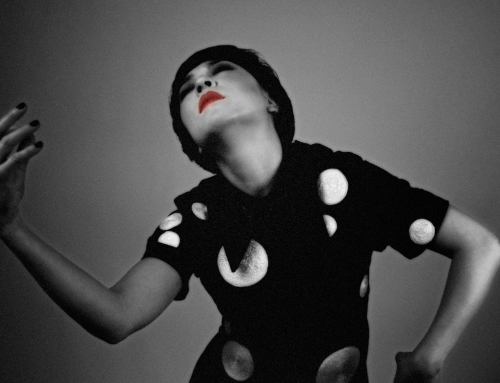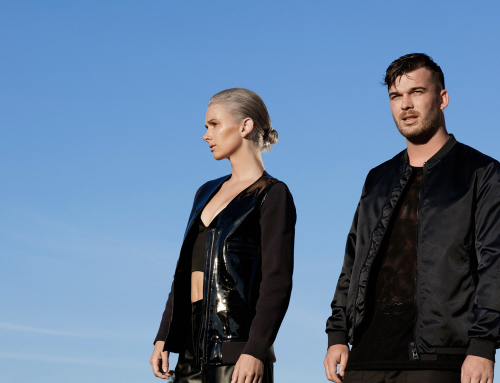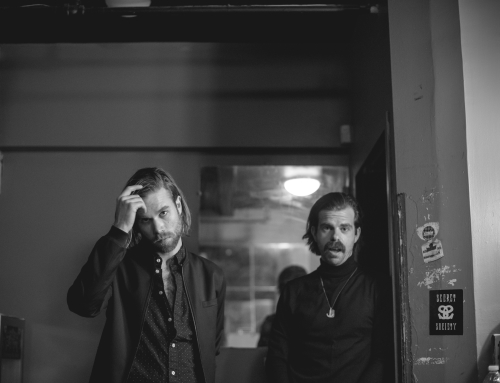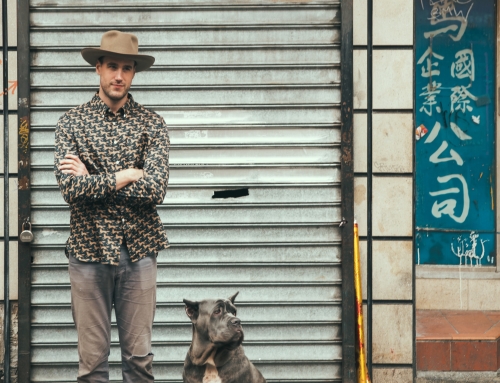To say that Laura Mvula is on the verge of music stardom seems almost too obvious a statement to make in light of her recent accolades. Still, Mvula continues to remain grounded and dismisses praise on par with her idols. While excited, she is anything but big headed over critical acclaim that includes this year’s BRIT Critics Choice Award and BBC’s Sound of 2013 Award, not to mention comparisons to industry giants like Nina Simone and Adele.
“I never thought I could sing, I didn’t believe I was a singer,” Mvula says during our interview before her April performance in Toronto. Yet, here the singer sits in front of me at the Drake Hotel, mere hours before a highly anticipated, sold out show.
The creative force behind this year’s hit album Sing to the Moon’s soulful and beautifully constructed lyrics and beats, the record’s tracks like their creator are captivating and distinctive in character.
At first glance, Mvula’s knack for fashion is immediately apparent; her shaved head, enormous hoop earrings, and golden iridescent eye shadow are a statement, and speak to her individuality. While her style is bold (Mvula jokes about wearing hoop earrings the size of her face), it’s more complementary than representative — almost making up for the singer’s natural modesty.
In town to promote her debut studio album, Sing to the Moon, Mvula shares how her achievements have yet to sunk in, and that she feels as if she could wake up any minute and find it all to be a dream. So what prevents this rising star from floating up, up and away with her rising star? Family according to the singer. With both brother and sister playing in her band, there is a constant reminder of where she stems from. “I care too much about what people think — well the people I care about anyway — to throw it away, and to let [fame] consume me,” says Mvula. For the singer, it was never about the spotlight.
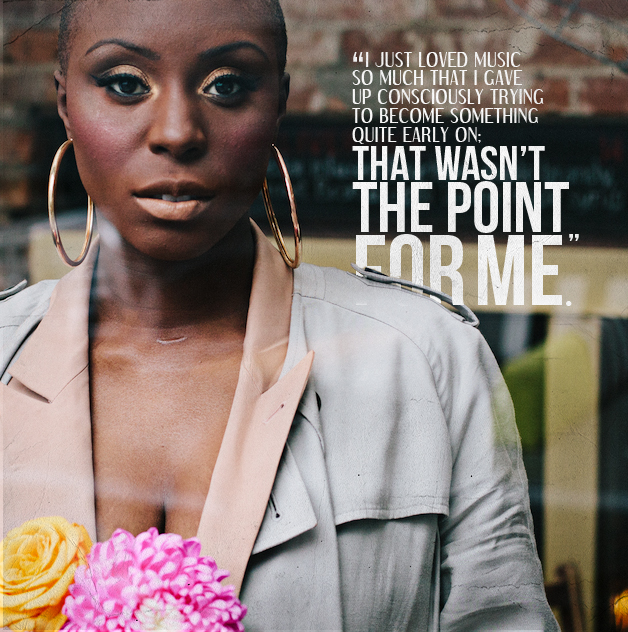
As a child, Mvula would sing and record Disney songs, only to start crying when she heard her voice. Defeated, many would have handed over the microphone and accepted the fact they could not sing, but Mvula persevered. When asked what ended those tears and motivated her to pursue music, she became contemplative, and admitted that this was something she had never been asked. After a brief silence, the singer simply answered, “I was just ignorant really,” she declares. “I just loved music so much that I gave up consciously trying to become something quite early on; that wasn’t the point for me. The point was to be involved, if I could be in a group — if I could be apart of something — that was greater.”
And so Mvula became the one always organizing groups to perform a song or dance at school talent shows, all the while remaining her own toughest critic. When questioned whether there was ever a point where she was too discouraged to continue music, she bursts out laughing, “All the time,” she says. “I had all this passion for music, but no real identity…and as far as I could see, no real ability…at least compared to peers that I was studying with.”
Before finding her voice, the singer’s wobbly ego and habit of comparing herself to her idols led to her striving to be something that she was not, which in fact inspired the evocative track, “That’s Alright.” “I think that song comes from every struggle that I have had in life. It came [at a] point in my personal development when I became exhausted by trying to be something or someone that I was believing was some sort of ideal, and I was becoming exhausted with the fact that I would just never reach that, and what the heck does that mean,” she explains. “Does that mean that I am invalid, or does it mean that I have failed in someway. I was becoming deeply worried in sort of my early 20s that I had learned something profoundly wrong about myself at a young age, and that this constant striving to be something else…is just heartbreaking. The song was an expression of that.”
Mvula goes on to talk about the importance of the song (she considers it the most important track on the record), and how she is still trying to find the core of the song in her live performances — a way of expressing the full passion behind lyrics like: “I will never be what you want and that’s alright.” She sighs, “It will come. I can’t wait for the moment where the meaning on the stage collides with the music and the band.”
On stage, Mvula’s music engulfs and enthrals the audience, a phenomenon that mesmerizes the singer to watch. “The moments where I can look at the audience into peoples eyes is the most special, and its actually still quite rare for me,” she shares. “Most of the time these days I am still looking over the heads of people cause I dare not look just in case I am going to catch someone picking their nose or starring at the floor bored out of their head. But the moment I see people lose themselves in the music, or they know lyrics or their just beaming…that’s like ‘wow.’ Its an indescribable that feeling, and I love it.”
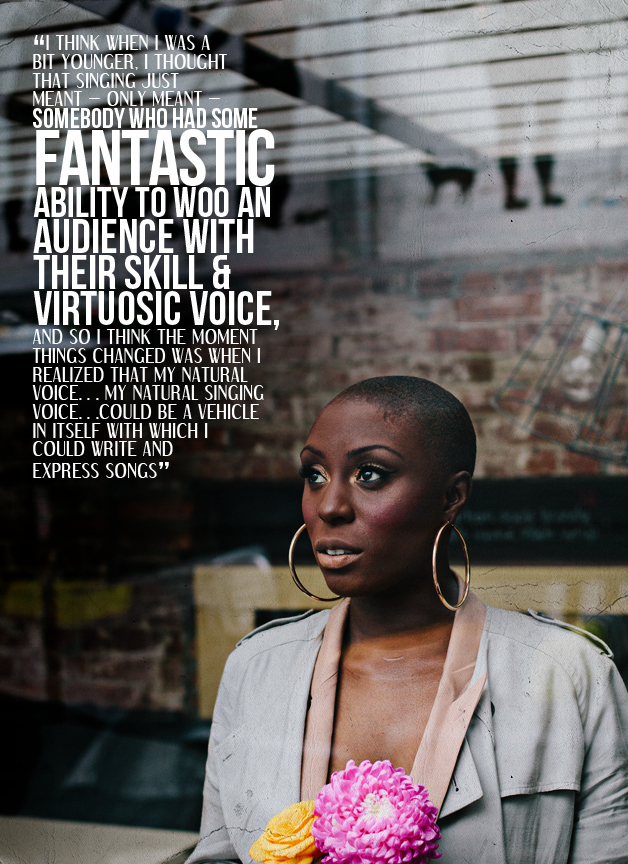
Boring the audience though, is the last of Mvula’s concerns. On stage, the singer commands the room despite her admitted stage fright. As Mvula shares, she’s come a long way from the shy girl she once was when she first stepped into the spotlight. “I think when I was a bit younger, I thought that singing just meant — only meant — somebody who had some fantastic ability to woo an audience with their skill and virtuosic voice, and so I think the moment things changed was when I realized that my natural voice…my natural singing voice…could be a vehicle in itself with which I could write and express songs.”
Mysterious and unassuming, Mvula knows how to woo and audience without resorting to flash tactics. In the end, all it took for the singer to find her voice was just accepting her vocal abilities. “I stopped thinking: I am going to be Jasmine from Aladdin,” she laughs. She just sang for the love of music, and her voice and soulful songs stood on their own — taller for not leaning on misguided aspirations to be a Disney princess. Disney can keep Jasmine, we’ll take Laura Mvula.
Published June 7, 2013








